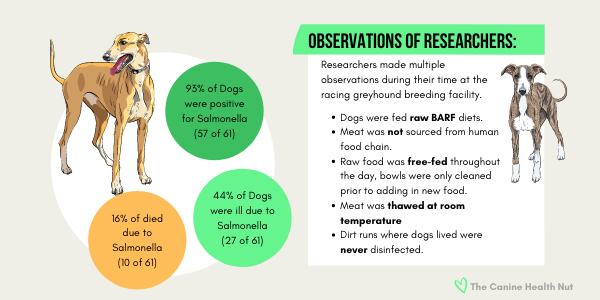
Introduction
Dog food safety has become a critical topic for pet owners, particularly in light of recent Salmonella outbreaks linked to various dog food brands. Salmonella is a bacterium that can cause serious health issues not only in dogs but also in humans who come into contact with contaminated products. With the rise in pet ownership and a growing focus on pet health, understanding the risks associated with Salmonella in dog food is essential for responsible pet care.
Recent Salmonella Outbreaks
In 2023, several dog food brands faced recalls due to potential Salmonella contamination. The U.S. Food and Drug Administration (FDA) issued warnings after detecting the pathogen in both dry and raw dog food products. Reports indicate that dogs infected with Salmonella may exhibit symptoms such as vomiting, diarrhea, fever, and lethargy. Worse, pet owners can contract the bacteria from handling contaminated food, which underscores the importance of food safety measures and proper handling.
How Salmonella Contamination Occurs
Salmonella can enter dog food through various pathways, including contamination during production, improper handling during packaging, or even through contaminated ingredients. Ingredients sourced from suppliers may carry the bacteria, especially if they are not appropriately processed or cooked. It is essential for manufacturers to maintain stringent hygiene and safety protocols to mitigate the risks associated with Salmonella.
Preventive Measures for Pet Owners
To protect your pets and yourself from Salmonella, follow these important guidelines:
- Check for Recalls: Regularly monitor the FDA website or your local pet store’s news for any recalls related to dog food.
- Safe Handling Procedures: Always wash your hands thoroughly with soap and water after handling dog food. Clean food bowls and utensils with hot, soapy water and ensure the food storage area is clean.
- Proper Storage: Store dog food in a cool, dry place and ensure it is sealed to prevent contamination.
- Consult Your Veterinarian: If you notice symptoms of illness in your pet, consult your veterinarian immediately.
Conclusion
The presence of Salmonella in dog food is a serious concern that can affect both pets and their owners. By staying informed and taking preventive measures, pet owners can significantly reduce the risk associated with Salmonella. Continued education about pet food safety will remain vital, especially as new products enter the market. Keeping an eye on recalls and following best practices can ensure a healthier environment for both pets and their families.



